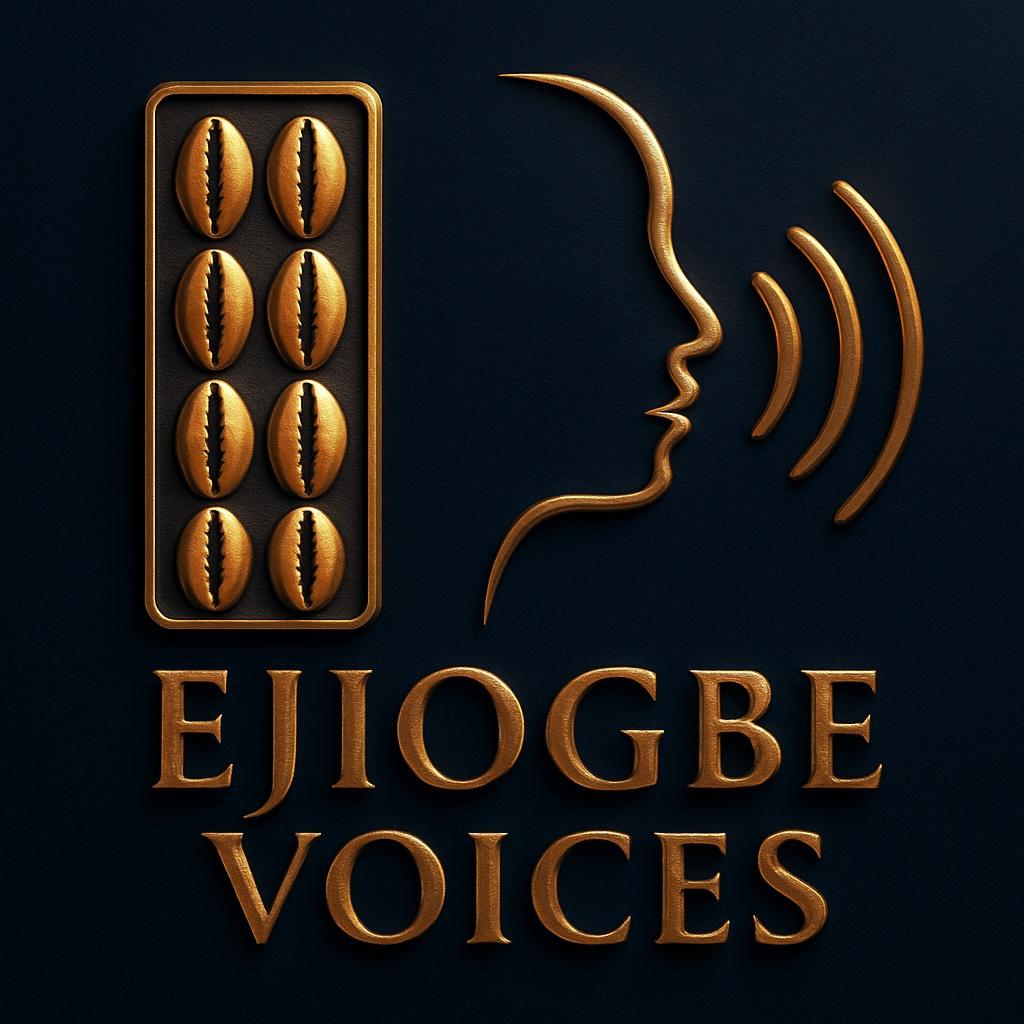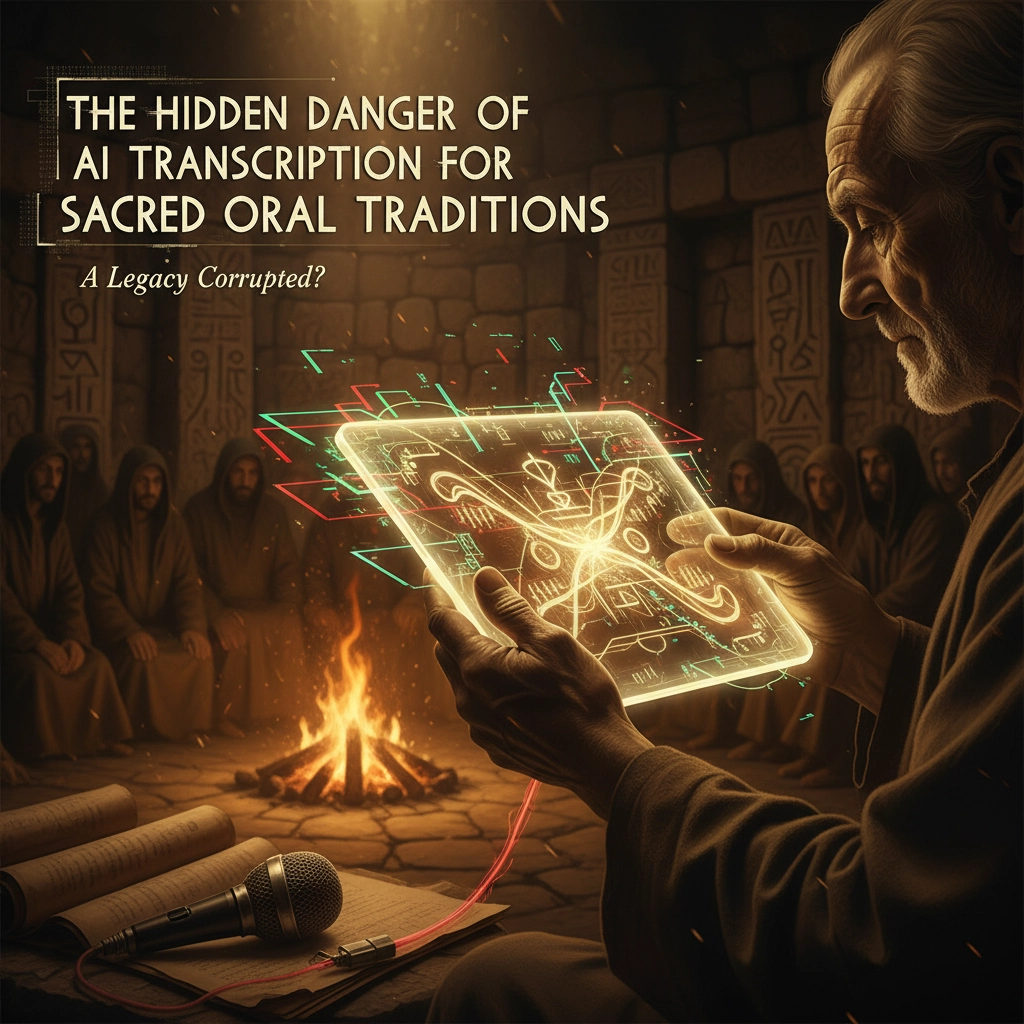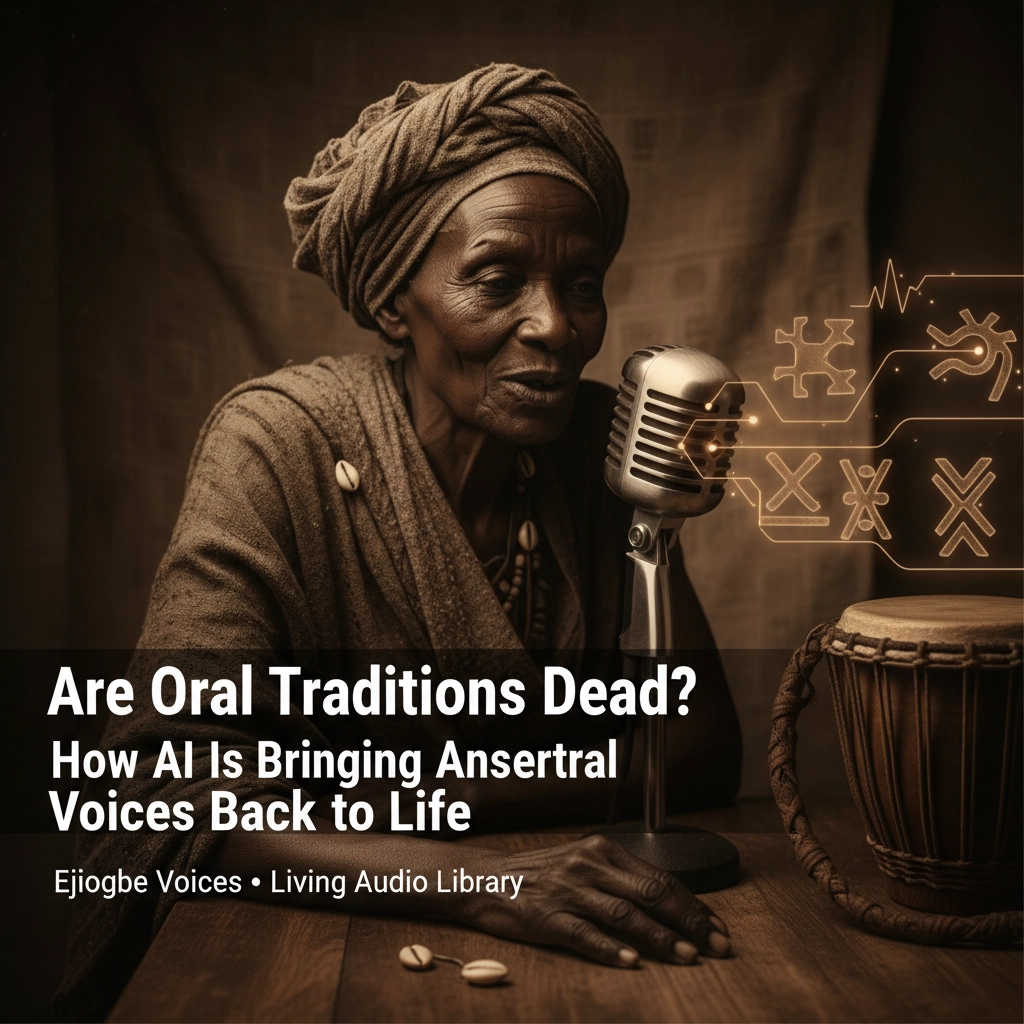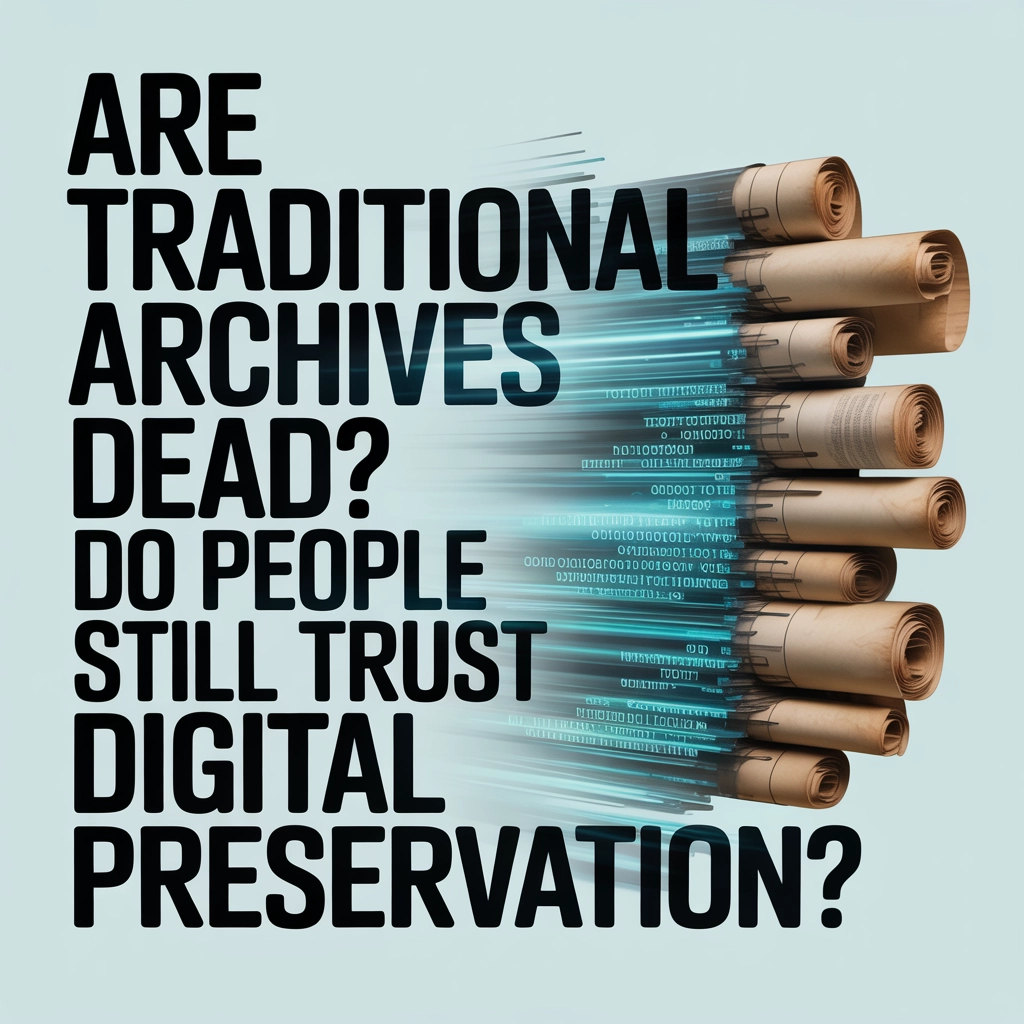Sacred oral traditions represent the heartbeat of cultures worldwide: living repositories of ancestral wisdom that have survived countless generations through the careful stewardship of elders, griots, and cultural custodians. As communities increasingly turn to AI transcription tools to preserve these precious voices, we face unprecedented dangers that threaten not just the accuracy of documentation, but the very essence of what makes these traditions sacred.
The allure of AI transcription is understandable. These tools promise quick, affordable solutions for communities struggling to preserve their elders' wisdom before it's lost forever. However, beneath this technological convenience lurk hidden threats that could irreversibly damage the cultural treasures we seek to protect.
The Fabrication Crisis: When AI Creates False Teachings
The most insidious danger facing our sacred traditions lies in AI's tendency to fabricate content that never existed in the original recordings. OpenAI's Whisper transcription model: one of the most widely used tools: has been documented generating hallucinations ranging from nonsensical phrases to disturbing and inappropriate content that bears no relationship to the source audio.
When applied to sacred oral traditions, this means AI could inject entirely false spiritual teachings, corrupted prayers, or inappropriate material directly into transcripts of our most treasured stories. Imagine discovering that an AI system has inserted fabricated prophecies into a transcript of an elder's teaching, or has generated false historical claims that become permanently associated with your community's creation stories.
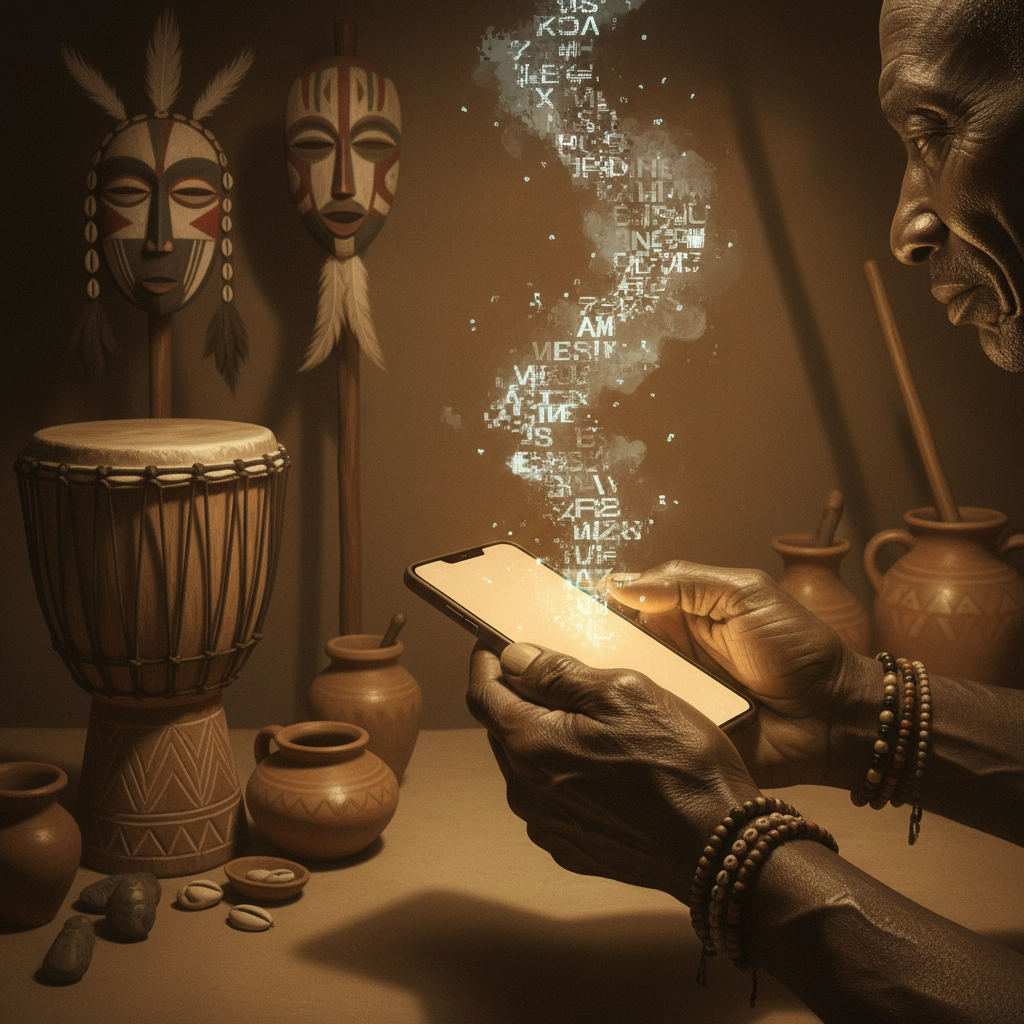
The danger becomes exponentially worse because these AI-generated transcripts often become the reference version for future generations. Young people learning their cultural heritage may unknowingly accept these AI fabrications as authentic ancestral wisdom, creating a cascade of corruption that could fundamentally alter their understanding of their own traditions.
The Loss of Sacred Performance Elements
Our ancestors understood something that modern technology struggles to grasp: sacred oral traditions are not merely collections of words to be transcribed. They are living, breathing performances that carry spiritual power through their delivery, timing, and interaction with listeners.
Every pause holds meaning. Every inflection carries intention. The way an elder's voice cracks with emotion while recounting a ancestor's struggle, the moments of reverent silence that follow a powerful teaching, the responsive calls from the community: these elements are integral to the sacred nature of the tradition itself.
AI transcription tools are notoriously poor at capturing these performance elements. They struggle with silences, fail to note emotional actions like laughter or tears, and completely miss the subtle vocal nuances that often contain the deepest spiritual significance. When we reduce these profound spiritual experiences to flat, context-free text, we risk destroying their transformative power and spiritual efficacy.
Data Exploitation: When Tech Companies Own Our Wisdom
Most free AI transcription services store and retain uploaded audio files, with many claiming various rights over the content processed through their systems. This creates a disturbing scenario where sacred knowledge: carefully guarded by communities for generations: suddenly becomes accessible to tech corporations and potentially subject to commercial exploitation.
The implications extend far beyond simple privacy violations. We risk seeing our sacred narratives commercialized without consent, transformed into entertainment products, or worse, used to train AI models that could then generate synthetic versions of our traditions for profit. A creation myth that has been shared only within ceremony could find itself repurposed as content for a commercial video game or virtual reality experience.
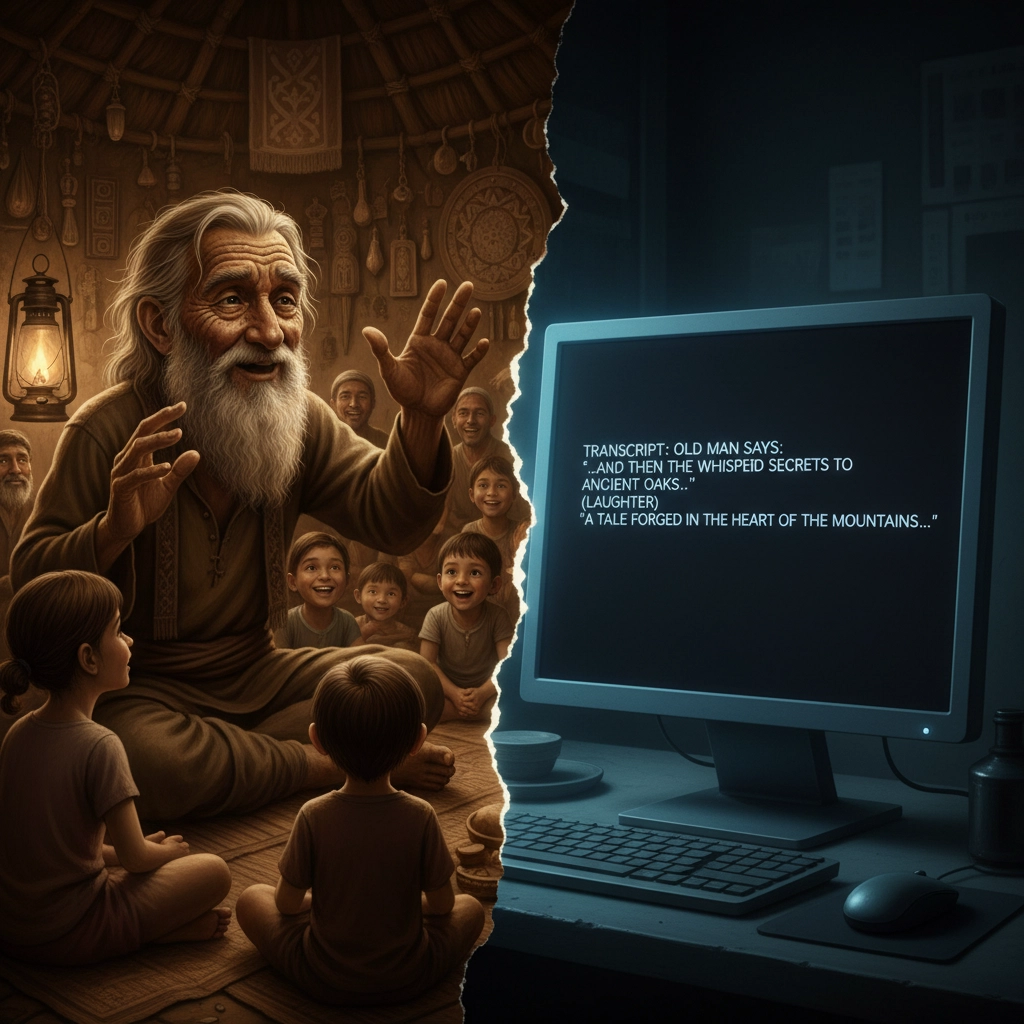
The traditional gatekeepers of these stories: our elders and cultural custodians: lose all control over how their wisdom is stored, shared, and ultimately used. This represents a fundamental violation of the trust relationships that have preserved these traditions for millennia.
Cultural Decontextualization and AI Bias
AI systems carry the biases of their creators and training data, which typically reflect Western perspectives and linguistic structures. When these systems process oral traditions from Indigenous, African, or other non-Western cultures, they apply these inherent biases to interpret and transcribe content that may be completely outside their cultural understanding.
This can result in mistranslations of sacred terms, misinterpretation of cultural references, or the imposition of inappropriate linguistic frameworks onto spiritual concepts that simply cannot be captured in Western terms. An AI system might consistently mistranscribe a sacred name, replace culturally specific concepts with generic Western equivalents, or fail to recognize when certain content should be marked as confidential or ceremonial.
The AI lacks the cultural knowledge necessary to recognize context cues that any community member would understand: when a story is being told for teaching versus entertainment, when certain passages are meant only for initiated listeners, or when the content requires special handling due to its sacred nature.
The Erosion of Traditional Gatekeeping
Sacred oral traditions typically involve designated storytellers: elders, griots, spiritual leaders: who serve as cultural custodians with the authority to determine when, how, and to whom these stories should be shared. This gatekeeping system has protected sensitive spiritual knowledge for thousands of years, ensuring that sacred teachings reach only those who are spiritually prepared to receive them.
AI transcription bypasses this traditional system entirely. Once a transcript exists, the sacred content becomes accessible to anyone who can access the document, regardless of their spiritual preparation, cultural standing, or the appropriateness of sharing such knowledge with them. This represents a fundamental disruption of the protocols that have kept these traditions alive and protected.
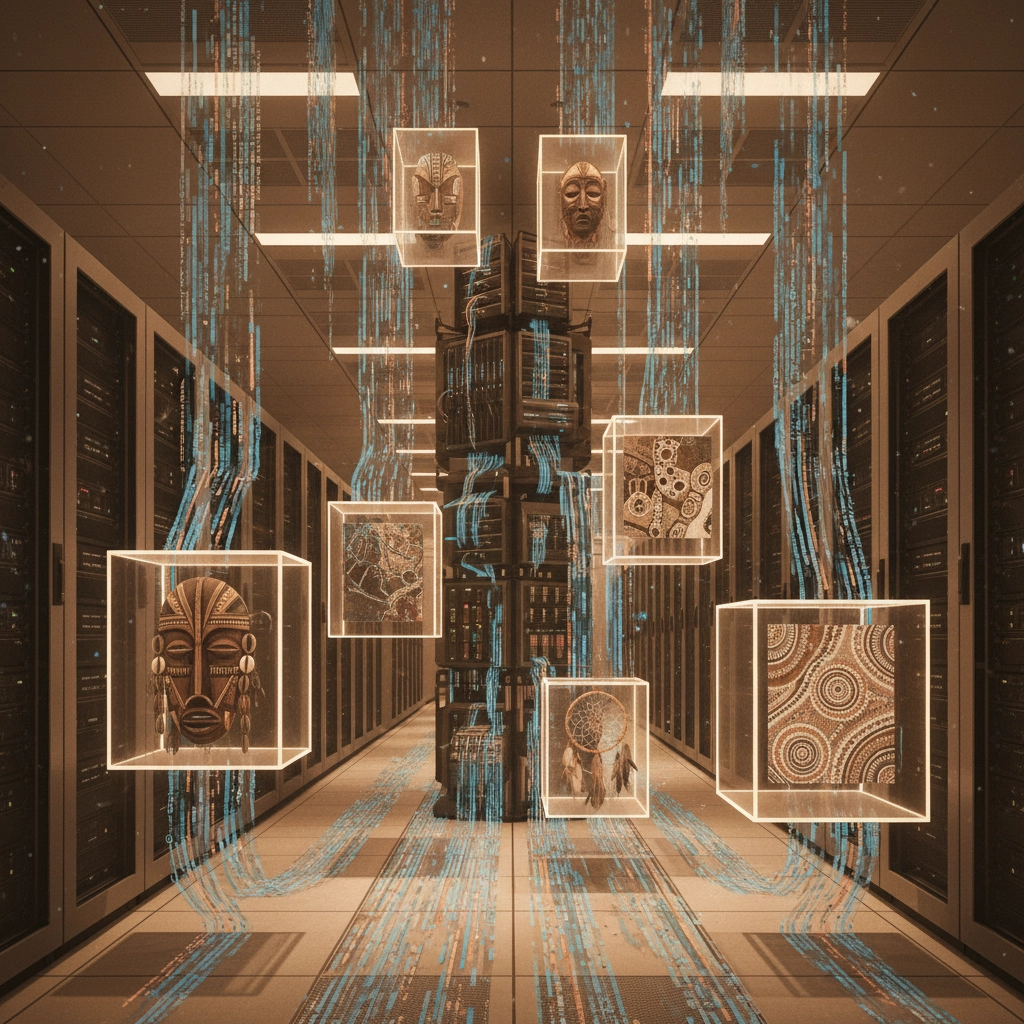
The False Promise of Permanence
Unlike oral traditions that evolve and adapt with each telling: incorporating new insights, responding to changing circumstances, and maintaining relevance for contemporary listeners: AI-generated transcripts create fixed, permanent records that capture only a single moment in the tradition's living history.
This false permanence can lead communities to believe they have successfully "preserved" their traditions when they have actually captured only a diminished, potentially corrupted snapshot. The dynamic, interactive nature of oral tradition: its ability to respond to the needs of each generation: gets lost in the pursuit of technological preservation.
A Call for Community-Controlled Solutions
The dangers of AI transcription for sacred oral traditions are real and present. However, this doesn't mean technology has no role in preservation efforts. Instead, we must demand community-controlled solutions that respect the sacred nature of these traditions while leveraging technology appropriately.
True preservation requires tools designed specifically for cultural communities, with built-in protections for sacred content, community ownership of data, and interfaces that capture the full richness of oral performance. It requires partnerships between technology developers and cultural custodians, ensuring that elders maintain authority over how their wisdom is documented and shared.
At Ejiogbe Voices, we recognize these dangers and are committed to developing solutions that honor the sacred nature of oral traditions while providing communities with the tools they need for authentic preservation. Our approach prioritizes community control, elder guidance, and respect for the living nature of oral traditions.
The wisdom of our ancestors deserves better than the risks posed by generic AI transcription tools. It deserves technology that honors its sacred nature, preserves its full richness, and ensures that future generations receive these teachings in their authentic form: unchanged by AI hallucinations, unexploited by corporations, and undiminished by technological limitations.
Our sacred voices carry the future of our cultures. We must protect them with the same care and reverence they have always deserved.
